President Trump’s delay-the-election trial balloon on Twitter last week was resoundingly denounced, and rightly so.
Indeed, so thorough was the repudiation, including from top Republicans, that the president backtracked a little. “I don’t want to delay,” Trump explained in a press conference to discuss the pandemic. “I want to have the election. But I also don’t want to have to wait for three months and then find out that the ballots are all missing, and the election doesn’t mean anything. That’s what’s going to happen.”
Although delaying the election is an abhorrent idea, contrary to what this country stands for, Trump does have a point about mail-in-voting. It could well be a disaster. What’s astounding (though not actually surprising) is that the president doesn’t want to do anything about it.
First, let me explain why Trump has a point. Although his claims of massive and systemic fraud are ill-founded and irresponsible, his point about the vote counting has merit.
New York City’s June 23 primary was—or rather, still is—something of a train wreck. About 10 times the normal number of voters cast their ballots by mail. The system was overwhelmed. As of this writing, there’s still an undecided congressional race 42 days after the voting was supposed to end.
I’m generally opposed to widespread voting by mail because I think Election Day is an important civic ritual, and early voting, particularly in primaries, can end up thwarting popular will. That opposition melts away during a pandemic, of course, but the fact is that mail-in balloting has never been tried on the scale that might be required come November.
The five states that are already vote-by-mail only—Colorado, Hawaii, Oregon, Washington, and Utah—should be fine. But in other states it might be a hot mess. Not only could ballot-counting efforts be overwhelmed, but the post office could be as well, causing ballots to be lost or excessively delayed.
Many argue that Trump is making a tactical mistake in attacking mail-in balloting. Republicans have spent years building up their vote-by-mail operations, leaving Democrats far behind. Launching a campaign to discredit a system well suited to harvest votes from the disproportionately older and rural voters making up Trump’s base seems like madness.
On the other hand, as my colleague Sarah Isgur notes, a hot mess could actually be in Trump’s interest. Absentee ballots are rejected—purely for technical reasons, such as failing to fill out a line on the form—at a higher rate than those cast in person. And if Democrats trust mail-in balloting and Republicans don’t, more Democrats are likely to vote by mail—and have more of their ballots rejected as a result. In Wisconsin’s April primary, some 23,000 absentee ballots were thrown out. In 2016, Trump carried Wisconsin by 22,748 votes.
What’s remarkable, though, is that most of the conversation is about Trump’s political or psychological needs and not his obligations as president. It’s been made clear to him that moving the election is a non-starter. What’s his response? To preemptively discredit the election results. Even his complaints about the problems with mail-in voting are couched not in his obligations as chief executive to see that the integrity of our elections be preserved, but in partisan grievance. He’s tweeted about a “CORRUPT ELECTION” that will “LEAD TO THE END OF OUR GREAT REPUBLICAN PARTY.”
If Trump is so concerned about the legitimacy of the election, why not, you know, do something to assure the election is conducted properly?
There’s nothing stopping Trump from pushing a massive effort to, say, gear up the U.S. Postal Service to handle an increased volume of mail during the election period. Instead, the donor he appointed to run the USPS has eliminated overtime for postal workers, virtually ensuring delivery delays. Trump could also use the same emergency powers he’s used to acquire ventilators to buy secure ballot drop boxes for the states.
Instead, on Monday, he raised the possibility of issuing an executive order to force states not to use vote-by-mail. As with moving Election Day, he has no such power.
Putting aside plausible theories that Trump is laying a foundation to claim he was robbed of re-election, his response is of a piece with his pandemic denial. Just as you can’t get the schools reopened or the economy revived without dealing with the pandemic, you can’t have a normal election by just pretending there’s no pandemic. Predicting it will “just disappear” isn’t a strategy.
But rather than face that reality and take appropriate action, Trump prefers to carp as if his hands are tied—but his fingers are free to tweet.
Photograph by Jason Redmond/AFP via Getty Images.
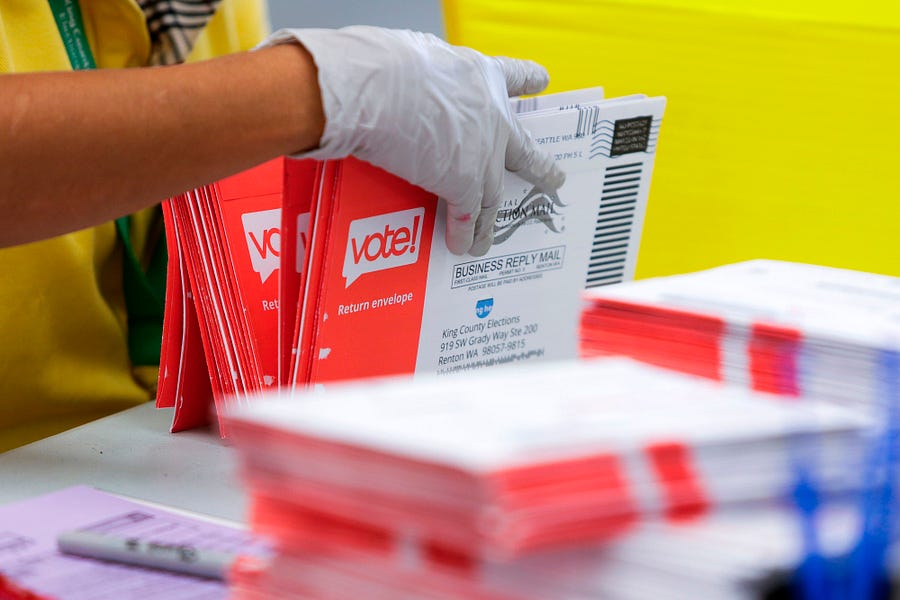

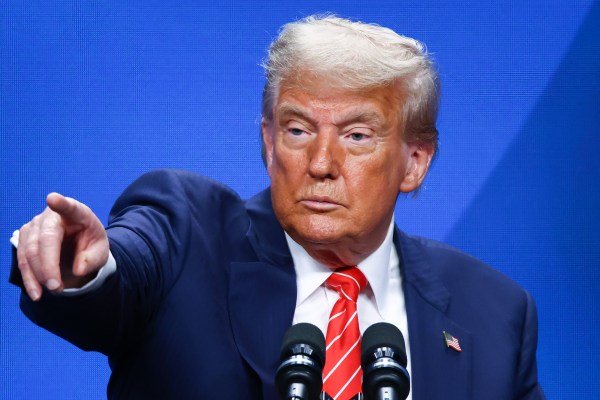
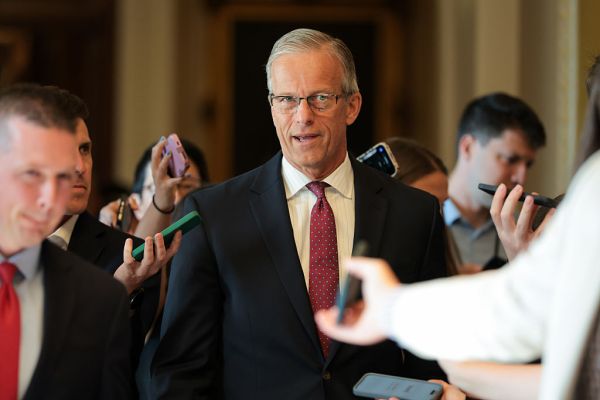

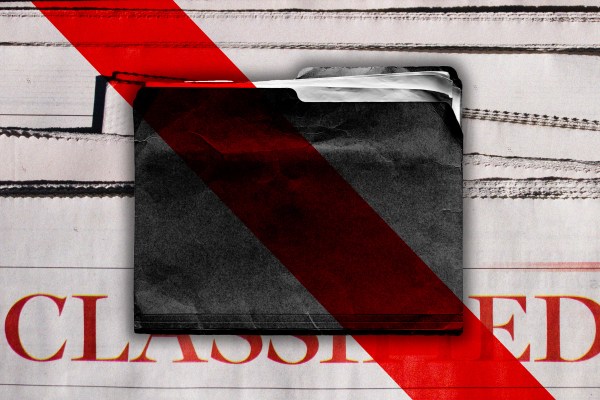
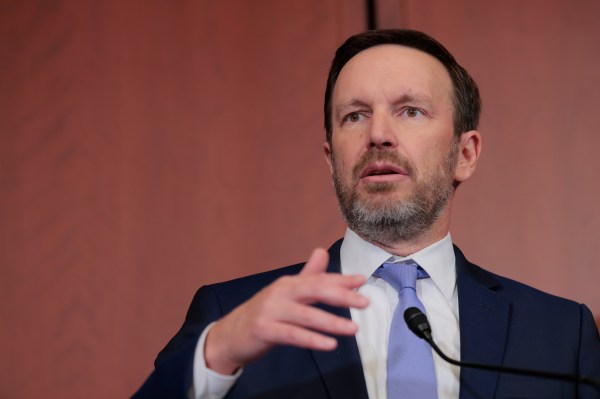

Please note that we at The Dispatch hold ourselves, our work, and our commenters to a higher standard than other places on the internet. We welcome comments that foster genuine debate or discussion—including comments critical of us or our work—but responses that include ad hominem attacks on fellow Dispatch members or are intended to stoke fear and anger may be moderated.
With your membership, you only have the ability to comment on The Morning Dispatch articles. Consider upgrading to join the conversation everywhere.